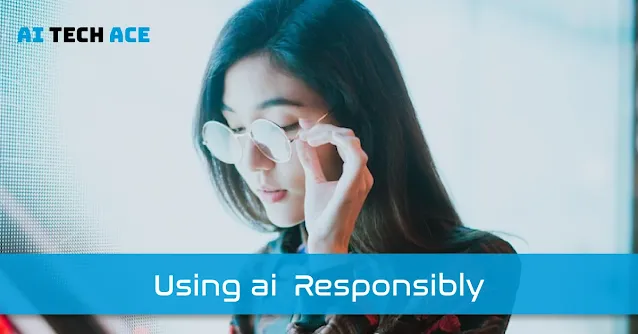
Have you ever looked in the mirror and wondered if you are attractive? This is a common question. People want to understand and improve how they look. Facial attractiveness is important in many parts of life. It affects confidence, social interactions, job chances, and overall well-being.
In this modern world, artificial intelligence (AI) is being used to study facial beauty. But how does AI do this? And what should we think about? Let’s learn about AI and facial attractiveness analysis.
How AI Measures Facial Beauty:
AI uses computer vision and machine learning to analyze faces. Computer vision helps machines understand visual data like images and videos. Machine learning allows them to learn and improve over time. Here’s a breakdown of the process.
- Image Capture: The first step involves capturing a clear, well-lit image of the face. Factors like angle, lighting, and expression can all affect the accuracy of the analysis.
- Facial Landmark Detection: AI algorithms then identify and map key facial landmarks, such as the positions of the eyes, nose, mouth, and jawline. This creates a detailed map of the facial structure.
- Feature Extraction and Analysis: Once the landmarks are identified, the AI extracts specific features like symmetry, proportions, and skin texture.
- Comparison to Standards: These extracted features are then compared to predefined models or databases of what is considered “attractive” across various cultures and ethnicities.

Factors to Considered:
While symmetry has long been associated with beauty, AI algorithms take a more nuanced approach. Here are some key factors considered:
- Symmetry: Facial symmetry is often seen as an indicator of good health and genetic fitness. AI measures the evenness of facial features on both sides of the face.
- Proportions: The ideal proportions of facial features, like the distance between the eyes or the size of the lips in relation to the nose, can vary across cultures. AI algorithms incorporate these variations to provide a more comprehensive assessment.
- Skin Quality: Clear, smooth, and evenly toned skin is often associated with youthfulness and vitality. AI analyzes factors like texture, blemishes, and wrinkles.
- Facial Harmony: AI goes beyond individual features, assessing how all elements work together to create a balanced and aesthetically pleasing composition.
AI Tools and Applications:
The rise of AI has led to the development of several online tools and applications that offer facial attractiveness analysis. Some popular examples include:
- Attractiveness Test: This tool analyzes your facial features and provides a beauty score out of 10, assessing your facial attractiveness and symmetry.
- Face++: This platform offers a wider range of analyses, including facial features, skin quality, and age estimation.
- Beauty.ai: This app goes beyond a simple score, offering personalized suggestions for improvement based on your unique features.
- Vidnoz: Offers a variety of beauty analysis features, including attractiveness score, skin analysis, and smile analysis.
- LooksMax AI: This app focuses on analyzing facial symmetry, which is often considered a factor in attractiveness.
While these tools offer a glimpse into AI’s capabilities, it’s important to remember that they are not foolproof.
Accuracy and Reliability:
The effectiveness of AI attractiveness analysis depends on several factors:
- Image Quality: Low-resolution images with poor lighting or obscured features can lead to inaccurate results.
- Data Bias: AI algorithms are trained on large datasets of images. If these datasets are not diverse and representative of different ethnicities and beauty standards, the analysis could be biased.
- The subjectivity of Beauty: Ultimately, beauty is subjective, and what one person finds attractive another might not. AI can offer an objective assessment based on certain criteria, but it cannot capture the full spectrum of human preference.
Therefore, it’s crucial to approach these tools with a healthy dose of skepticism and as a starting point for further exploration, not the definitive answer.
Using AI Responsibly:
The allure of AI attractiveness analysis can be strong, but it’s important to use these tools responsibly. Here are some key considerations.
- Focus on Improvement, Not Validation: AI tools can be helpful for identifying areas for improvement, such as suggesting flattering hairstyles or makeup techniques. However, they should not be used for self-validation.
- Embrace Your Uniqueness: AI tends to analyze attractiveness based on averages. True beauty lies in embracing your unique features and what makes you stand out.
- Holistic Approach to Beauty: Attractiveness is more than just facial features. It encompasses personality, confidence, and inner beauty. AI cannot measure these aspects, so don’t let a score define you.
Conclusion:
AI offers an interesting way to look at facial looks. While it gives useful ideas and ways to improve, it shouldn’t be the only way to decide your value. Like any tool, it should be used ethically and responsibly. The goal is not to create a standard of beauty. Instead, the goal is to celebrate each person’s individuality.
FAQs:
Can AI tell me how attractive I am?
AI analyzes faces for features like symmetry and proportions, but it doesn’t consider cultural beauty standards or inner beauty. It can be a fun tool, but focus on confidence and what makes you feel good about yourself!
Should I use AI to improve my looks?
AI can suggest flattering hairstyles or makeup, but true beauty comes from confidence. Use AI for inspiration to experiment and find what makes you feel beautiful on the inside and out!
Is AI the future of beauty analysis?
AI is constantly evolving, and it may become more sophisticated in analyzing attractiveness. However, the focus should be on celebrating diversity and inner beauty, not creating a uniform standard.
Are AI attractiveness tests exact?
AI attractiveness tests are inexact. Beauty is subjective and cultural, while AI tests rely on averages. These tests can be a fun way to get a general idea, but they shouldn’t be definitive.
What’s more important than an AI beauty score?
Confidence, kindness, and individuality are what truly make someone attractive. AI can’t measure these qualities, so focus on developing them and radiating your inner light!



Post a Comment